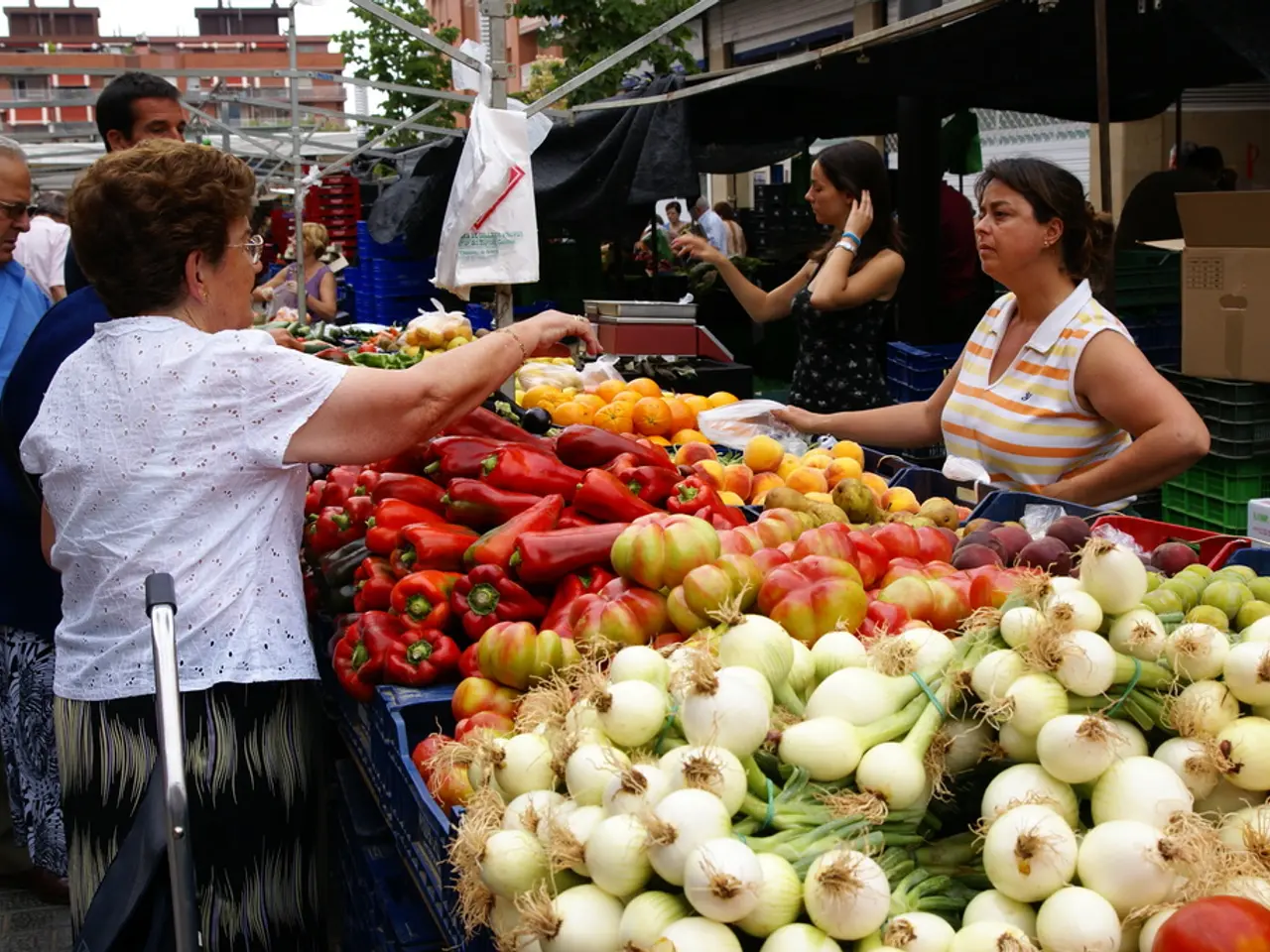Revising the World Plastics Agreement at the United Nations Assembly
As of mid-August 2025, the United Nations' Global Plastics Treaty negotiations have hit a significant roadblock, primarily due to deep-seated disagreements among countries over critical issues like production caps on virgin plastics [4][5].
The divide is apparent between a majority of over 100 "ambitious" countries, such as Canada, Mexico, the UK, EU states, and Australia, advocating for a legally binding treaty that includes caps on virgin plastic production, phaseouts, financial mechanisms, and stronger product design regulations. On the other hand, a smaller bloc of major oil and gas producing countries, including the US, China, Russia, and Saudi Arabia, favour a more voluntary agreement focused primarily on waste management, recycling, and reuse [1][2][4][5].
The issue of production caps on virgin plastic is one of the most contentious points. Many developing countries, coalitions, environmental organizations, and over 250 business and financial institutions are calling for legally binding limits on plastic production to address the full lifecycle impacts, given plastic's significant contribution to the climate crisis and pollution [1][3]. However, oil and petrochemical interests have actively resisted such provisions, trying to narrow the treaty scope to waste management only [3][4].
Potential solutions to break the deadlock include approving the treaty by majority vote rather than consensus, a departure from usual UN practice, or a smaller group of countries forming an agreement outside the formal UN process, then inviting others to join later to build momentum [2]. Incremental approaches, such as phased targets or voluntary measures, are also being considered, but these lack the enforceability that many negotiators and advocates deem essential [4][5].
Industrial lobbying plays a significant role in the stalled talks, with fossil fuel and chemical industry lobbyists heavily representing interests against strict production limits [4].
Interestingly, the history of plastics can be traced back to the Mesoamerican indigenous people who found a way to string out natural rubber latex from tree sap around the sixteenth century [6]. Today, nature has the potential to deliver polymers, including bioplastics, and it is even possible to manufacture biodegradable plastics from petroleum products [5].
The exclusion of bioplastics from the current plastics treaty is a serious flaw in the proposed agreement. Rubber, a natural polymer, may be considered a kind of bioplastic [7]. The ozone treaty, the only UN treaty ratified by all member states, also involved chemicals with strong industrial lobbying support [4].
Negotiation theorists use the term "Zone of Possible Agreement" (ZOPA) to consider what is also the "Best Alternative to a Negotiated Agreement" (BATNA) for various parties. Unfortunately, as of late August 2025, there is no common ZOPA between fossil fuel producing countries and the rest of the world regarding the issue of production caps [1][2][4][5].
References:
[1] BBC News. (2025, August 10). UN global plastics treaty in doubt as talks stall. Retrieved from https://www.bbc.com/news/science-environment-56063230
[2] The Guardian. (2025, August 12). UN plastics treaty in jeopardy as US and Saudi Arabia block production limits. Retrieved from https://www.theguardian.com/environment/2025/aug/12/un-plastics-treaty-in-jeopardy-as-us-and-saudi-arabia-block-production-limits
[3] Reuters. (2025, August 15). UN plastics treaty deadlock as major oil producers resist production caps. Retrieved from https://www.reuters.com/business/environment/un-plastics-treaty-deadlock-major-oil-producers-resist-production-caps-2025-08-15/
[4] The New York Times. (2025, August 20). The Global Plastics Treaty Stalls as Major Oil Producers Resist Production Caps. Retrieved from https://www.nytimes.com/2025/08/20/climate/un-plastics-treaty-stalls-oil-producers.html
[5] Science Direct. (2025, July 1). Global Plastics Treaty: A Critical Analysis of the Current Negotiations. Retrieved from https://www.sciencedirect.com/science/article/pii/S0048969721307181
[6] The Philosophical Transactions of the Royal Society. (2021). The historical development of plastics: From natural rubber to synthetic polymers. Retrieved from https://royalsocietypublishing.org/doi/10.1098/rsta.2021.0006
[7] Journal of Materials Chemistry. (2023). The potential of bioplastics: A review. Retrieved from https://pubs.rsc.org/en/content/articlelanding/2023/jm/d3jm00344a
Read also:
- Amidst India's escalating climate crisis, transgender individuals continue to persevere
- Germany's three-month tenure under Merz's administration feels significantly extended
- Governing body allegedly persists in enjoying vacation time amidst Spain's highest danger level due to fires, claims Feijóo
- United Nations Human Rights Evaluation, Session 45: United Kingdom's Statement Regarding Mauritius' Human Rights Record




